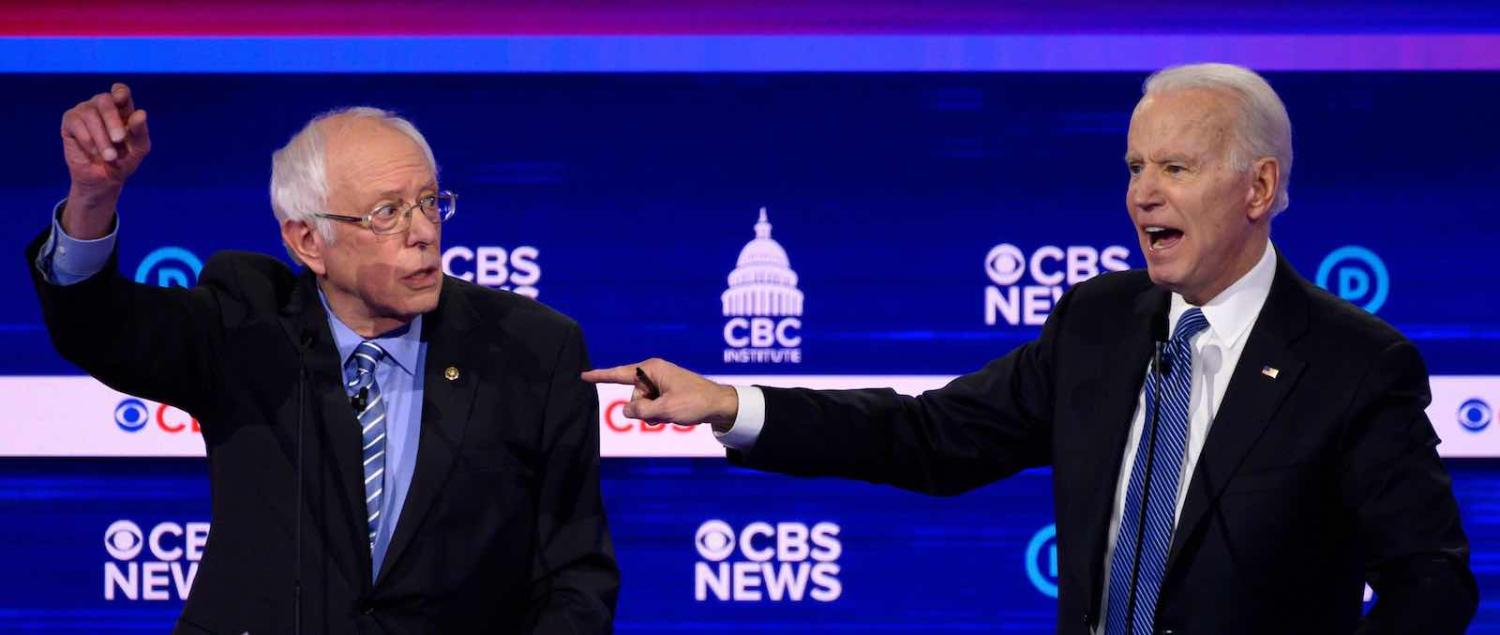After a lacklustre start to the Democratic primary season in the race to select a candidate for the November presidential election, the results from the demographically diverse states of Nevada and South Carolina introduced some excitement with two dominant performances.
In Nevada, Senator Bernie Sanders won with nearly 50% of the vote. Vice President Joe Biden was a distant second with 20%. Yet in South Carolina, the positions were reversed, with Biden winning roughly 50% of the vote and Sanders winning 20%. Following South Carolina, Sanders maintains a small lead over Biden in terms of the delegate count, but Democrats appear to be headed into a closely contested two-person race.
A candidate needs to win more than half of the nearly 4000 delegates awarded in the primary elections in order to claim the Democratic nomination. (Only 155 delegates were awarded in the four early voting states.) On Super Tuesday (3 March), 15 states and territories will vote and more than a third of the delegates (1357) will be awarded.
A likely winnowing of the crowded Democratic field is a reassuring development for the party, and as a consequence returns expectations about this race to where they began prior to opening vote in Iowa. However, these earlier expectations were largely based on the 2016 matchup between the moderate Hillary Clinton and progressive Bernie Sanders. The results out of Nevada and South Carolina provide some insight into what attracts Democratic voters to these two specific candidates in this political moment.
Biden is known for his tendency to garble or mix up his words, but he is a near-perfect communicator of what loss and tragedy and the struggle to keep personal faith feels like.
Although Sanders came into the Nevada primary with momentum from his strong performances in Iowa and New Hampshire, Nevada was an important initial test of his ability to form a broad coalition of Democrats. The results demonstrated that Sanders had, in fact, expanded his coalition from 2016 to Latino voters who predominantly supported Hillary Clinton last time.
In lead up to the Nevada caucuses, Sanders’s more moderate rivals attacked him aggressively on his “Medicare for All” healthcare proposal and had good reason to expect that these attacks would diminish his support. Members of Nevada’s most influential union were reportedly happy with the generous private healthcare plan they had negotiated with management. The leadership of the Culinary Workers Union decided not to make an endorsement in the race and publicly criticised the Sanders plan.
In the Las Vegas debate shortly before the caucus, Sanders swatted away these criticisms, explaining to his “brothers and sisters in labour” that they would do just as well if not better under his plan. In Nevada, Bernie won rank-and-file union members by a large majority, and – not unrelated – he also won a majority of the Latino vote.
As the candidate in the race who has spent decades immersed in grassroots politics, Sanders likely understood the union members better than his rivals did. Yes, many union members are happy with their healthcare benefits. But they have literally spent years on picket lines to win them, and the struggle continues year after year, keeping them in a precarious position. Addressing that position is the point of an all-encompassing healthcare plan like the one the Sanders campaign is proposing.
In South Carolina, Vice President Joe Biden had two compelling stories to share with the state’s predominantly African-American electorate, many of whom are conservative churchgoing activists.
First, President Barack Obama chose him as a running mate and trusted him as Vice President. Second, Biden’s relationship with the state’s political leadership goes back decades, and he knows them intimately. When nine African Americans were killed during a Bible study group at the Emanuel African Methodist Episcopal Church in Charleston, Biden came to speak at the funeral just weeks after the death of his son Beau from brain cancer. Biden is known for his tendency to garble or mix up his words, but he is a near-perfect communicator of what loss and tragedy and the struggle to keep personal faith feels like.
Biden needed to win decisively in South Carolina, but beyond winning, he also needed to project strength and staying power heading into Super Tuesday. In a powerful speech following the announcement of the results, Biden effectively reintroduced himself to the Democratic electorate. When he entered the 2020 race, Biden talked about himself like a presumptive nominee. But on Saturday night he spoke as someone who had been knocked down, and improbably, got back up:
This isn’t an election to spend all our time in a battle for the soul of the Democratic Party. We’re fighting for the soul of America … It’s time for America to get back up.
The Sanders campaign maintains a distinct advantage over the Biden campaign in terms of money and organisation across the country, but South Carolina gave Biden momentum. Biden’s victorious moment, like the one Sanders experienced in Nevada, will be short-lived. Just 72 hours after Biden spoke in South Carolina, the deck is going to be reshuffled again, based on results from across the country. (California, an important Super Tuesday state, allowed mail-in voting, which is expected to delay that state’s results.)
One unknown heading into Super Tuesday is the viability of former New York City Mayor Michael Bloomberg, who was not on the ballot in the first four states but has invested heavily in Super Tuesday media markets. If Biden performs well on Tuesday there will be increasing pressure for Bloomberg and the other moderate candidates – Mayor Pete Buttigieg and Senator Amy Klobuchar – to withdraw.
But there are miles to go before anyone sleeps. In 2008 and 2016 Super Tuesday did not determine the Democratic nominee, and it is unlikely to do so in 2020. Biden’s appeal to voters is perhaps more poetic than that of Sanders, but both are compelling and will be vigorously tested across the country in the months ahead.

